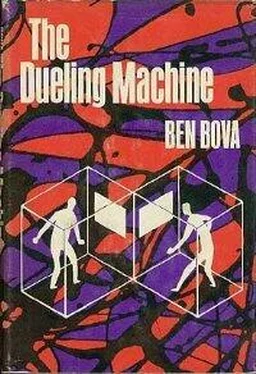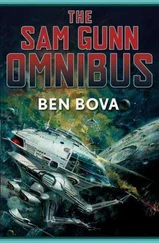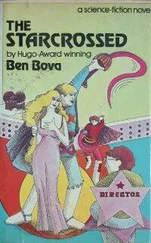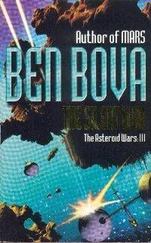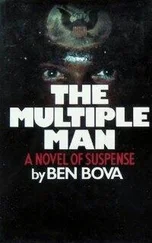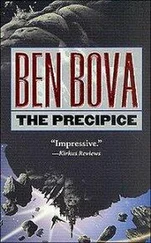Ben Bova - The Dueling Machine
Здесь есть возможность читать онлайн «Ben Bova - The Dueling Machine» весь текст электронной книги совершенно бесплатно (целиком полную версию без сокращений). В некоторых случаях можно слушать аудио, скачать через торрент в формате fb2 и присутствует краткое содержание. Год выпуска: 1969, ISBN: 1969, Издательство: Holt, Rinehart and Winston, Жанр: Фантастика и фэнтези, на английском языке. Описание произведения, (предисловие) а так же отзывы посетителей доступны на портале библиотеки ЛибКат.
- Название:The Dueling Machine
- Автор:
- Издательство:Holt, Rinehart and Winston
- Жанр:
- Год:1969
- ISBN:0-03-081491-X
- Рейтинг книги:4 / 5. Голосов: 1
-
Избранное:Добавить в избранное
- Отзывы:
-
Ваша оценка:
- 80
- 1
- 2
- 3
- 4
- 5
The Dueling Machine: краткое содержание, описание и аннотация
Предлагаем к чтению аннотацию, описание, краткое содержание или предисловие (зависит от того, что написал сам автор книги «The Dueling Machine»). Если вы не нашли необходимую информацию о книге — напишите в комментариях, мы постараемся отыскать её.
The Dueling Machine — читать онлайн бесплатно полную книгу (весь текст) целиком
Ниже представлен текст книги, разбитый по страницам. Система сохранения места последней прочитанной страницы, позволяет с удобством читать онлайн бесплатно книгу «The Dueling Machine», без необходимости каждый раз заново искать на чём Вы остановились. Поставьте закладку, и сможете в любой момент перейти на страницу, на которой закончили чтение.
Интервал:
Закладка:
Leoh spent as much of his spare time as possible with the other passengers of the ship. They were all enormously wealthy, as star-ship travelers had to be, or else they were traveling on government business—and expense. He was gregarious, a fine conversationalist, and had a nicely balanced sense of humor. Particularly, he was a favorite of the younger women, since he had reached the age where he could flatter them with his attention without making them feel endangered. But still, there were long hours when he was alone in his stateroom with nothing but memories. At times like these, it was impossible not to think back over the road he had been following.
Albert Robertus Leoh, Ph. D., professor of physics, professor of electronics, master of computer technology, inventor of the interstellar tri-di communications system. And more recently, student of psychology, professor of psychophysiology, founder of Psychonics, Incorporated, inventor of the dueling machine.
During his youthful years, with enthusiasm unbridled by experience, Leoh had envisioned himself as helping mankind to spread its colonies and civilizations throughout the galaxy. The bitter century of galactic war had ended in his childhood, and now human societies were linked together across the stars into a more-or-less peaceful coalition of nations.
There were two great motivating forces at work on those human societies, and these forces worked toward opposite goals. On the one hand was the urge to explore, to reach new stars, new planets, to expand the frontiers of man’s civilizations and found new colonies, new nations. Pitted against this drive to expand was an equally powerful force: the realization that technology had put an end to physical labor and almost to poverty itself on all the civilized worlds of man. The urge to move off to the frontier was penned in and buried alive under the enervating conflicts of civilization.
The result was inescapable. The civilized worlds became constantly more crowded. They became jam-packed islands of humanity sprinkled thinly across a sea of space that was still studded with unpopulated islands. The expense and difficulty of interstellar travel was often cited as an excuse. The star ships were expensive: their power demands were frightful. They could be used for business, for the pleasure of the very rich, for government travel; but hauling whole colonies of farmers and workers was almost completely out of the question. Only the most determined and best financed groups of colonists could afford them. The rest of mankind accepted the ease and safety of civilization, lived in the bulging cities of the teeming planets.
Their lives were circumscribed by their neighbors and by their governments. Constantly more people crowded into a fixed living space meant constantly less freedom. The freedom to dream, to run free, to procreate, all became state-owned, state-controlled privileges.
And Leoh had contributed to this situation.
He had contributed his thoughts and his work. He had contributed often and regularly. The interstellar communications system was only one outstanding achievement in a long career of achievements.
Leoh had been nearly at the voluntary retirement age for scientists when he realized what he and his fellow scientists had done. Their efforts to make life richer and more rewarding had only made it less strenuous and more rigid. With every increase in physical comfort, Leoh discovered, came a corresponding increase in spiritual discomfort—in neuroses, in crimes of violence, in mental aberrations. Senseless wars of pride broke out between star-nations for the first time in generations. Outwardly, the peace of the galaxy was assured except for minor flare-ups; but beneath the glossy surface of man’s civilization smoldered the beginnings of a volcano. Police actions fought by the Star Watch were increasing ominously. Petty wars between once-stable peoples were flaring up steadily.
Once Leoh realized the part he had played in all this, he was confronted with two emotions: a deep sense of guilt, both personal and professional; and, countering this, a determination to do something, anything, to restore at least some balance to man’s collective mentality.
Leoh stepped out of physics and electronics, and entered the field of psychology. Instead of retiring, he applied for a beginner’s status in his new profession. It took considerable bending and straining of the Commonwealth’s rules, but for a man of Leoh’s stature the rules could sometimes be flexed a little. Leoh became a student once again, then a researcher, and finally a professor of psychophysiology.
Out of this came the dueling machine. A combination of electroencephalograph and autocomputer. A dream machine that amplified a man’s imagination until he could engulf himself in a world of his own making. Leoh envisioned it as a device to enable men to rid themselves of hostility and tension, safely. Certainly psychiatrists and psychotechnicians used the machines to treat their patients. But Leoh saw further, saw that—as a dueling machine—the psychonic device could be used to prevent mental tensions and disorders. And he convinced many governments to install dueling machines for that purpose.
When two men had a severe difference of opinion, deep enough to warrant legal action, they could go to the dueling machine instead of the courts. Instead of passively watching the machinations of the law grind impersonally through their differences, they could allow their imaginations free rein in the dueling machine. They could settle the argument as violently as they wished, without hurting themselves or anyone else. On most civilized worlds, the results of properly monitored duels were accepted as legally binding.
The tensions of civilized life could be escaped—temporarily—in the dueling machine. This was a powerful tool, much too powerful to allow it to be used indiscriminately. Therefore Leoh safeguarded his invention by forming a private company, Psychonics, Incorporated, and securing an exclusive license from the Terran Commonwealth to manufacture, sell, install, and maintain the machines. His customers were government health and legal agencies. His responsibilities were: legally, to the Commonwealth; morally, to all mankind; and finally to his own restless conscience.
The dueling machines succeeded. They worked as well, and often better, than Leoh had anticipated. But he knew that they were only a stopgap, only a temporary shoring of a constantly eroding dam. What was needed, really needed, was some method of exploding the status quo, some means of convincing people to reach out for those unoccupied, unexplored stars that filled the galaxy, some way of convincing men that they should leave the comforts of civilization for the excitement and freedom of new lands.
Leoh had been searching for that method when the news of Dulaq’s duel had reached him. Now he was speeding across light-years of space, praying to himself that the dueling machine had not failed.
The two-week flight ended. The star ship took up a parking orbit around the capital planet of the Acquataine Cluster. The passengers trans-shipped to the surface.
Dr. Leoh was met at the landing disk by an official delegation, headed by Massan, the Acting Prime Minister. They exchanged formal greetings at the base of the ship while the other passengers hurried by, curious, puzzled. As they rode the slideway toward a private entrance to the spaceport’s administration building, Leoh commented:
“As you probably know, I have checked your dueling machine quite thoroughly via tri-d for the past two weeks. I can find nothing wrong with it.”
Massan shrugged. “Perhaps you should have checked the machine on Szarno instead.”
“The Szarno Confederation? Their dueling machine?”
“Yes. This morning, Kanus’ assassin killed a man in it.”
Читать дальшеИнтервал:
Закладка:
Похожие книги на «The Dueling Machine»
Представляем Вашему вниманию похожие книги на «The Dueling Machine» списком для выбора. Мы отобрали схожую по названию и смыслу литературу в надежде предоставить читателям больше вариантов отыскать новые, интересные, ещё непрочитанные произведения.
Обсуждение, отзывы о книге «The Dueling Machine» и просто собственные мнения читателей. Оставьте ваши комментарии, напишите, что Вы думаете о произведении, его смысле или главных героях. Укажите что конкретно понравилось, а что нет, и почему Вы так считаете.
